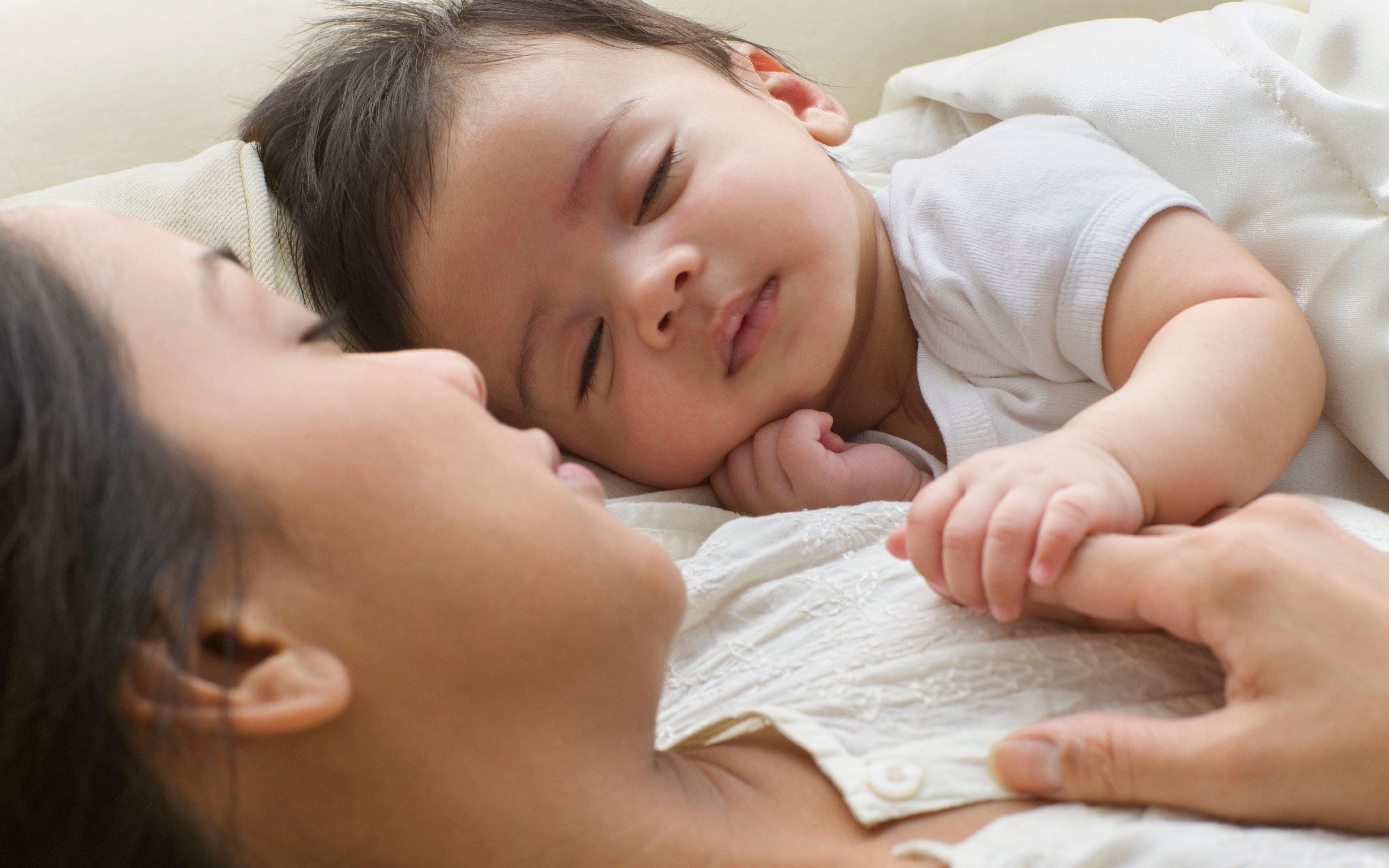Sleep tips for new parents: helping baby (and you) get a good night’s sleep
Beat sleep deprivation with these expert tips and tricks – so you and baby get the rest you need
While newborn babies can sleep for up to 18 hours a day, they don’t tend to nod off for more than a few hours at a time until they’re three or four months old. It can take two or three months for your baby’s circadian rhythm to develop – and with it a more regular sleep-wake cycle.
Looking for some tips on how to get baby to sleep? While some sleep deprivation is par for the course in life as a new parent, there’s plenty you can do to help your little one – and you – enjoy a more restful night. From what to look for when choosing a cot to what to include in baby’s bedtime routine, sleep consultant and founder of Little Sleep Stars Lauren Peacock gives us her newborn sleep tips.
Create a baby bedtime routine
Developing an effective, consistent bedtime routine helps your baby to learn when it’s time to go to sleep. Routines that are around 30-40 minutes tend to work well. ‘Your routine should flow well and include the same steps, in the same order, at roughly the same time each night,’ Lauren says. The steps you include will depend on what you and baby enjoy, but might include a 5-10 minute bath, baby massage, looking at a picture book and a bedtime feed. The most important thing to include? Lots of cuddles. ‘It’s important that baby feels connected and calm ahead of sleep,’ Lauren explains.
What should baby sleep in?
According to NHS guidelines, your baby should sleep in a cot in the same room as you until they are at least six months old. A co-sleeper bedside crib will keep them as close as possible while avoiding the risks involved in sharing a bed. ‘Babies are biologically wired to be close to a parent at all times, including when sleeping,’ Lauren says. ‘Side-sleepers enable a little one to see and touch a parent, while providing a safe, firm, flat and clear sleep surface.’ Concerned about sustainability? Consider investing in a co-sleeper crib that converts into a cot, then a bed as your child grows. The Gaia Baby Serena Complete Sleep+ Co-Sleeper Bedside Crib & Cotbed is a great long-term investment.
Kitting out the crib? Cotton baby bedding is comfortable, breathable and adapts well to temperature variations. ‘The essentials are a sleeping bag, a breathable blanket and some great sheets,’ says Cydney Ball, Partner & Assistant Buyer. ‘All of our John Lewis designs are made from sustainable materials. Our GOTS organic cotton sheeting range has a beautifully soft feel that remains wash after wash. It enables you to support the environment and ethical rights of those producing the product and ensures that the surface your baby will have the most contact with for the first six months of its life contains no harmful chemicals or dyes.’
Think about safety and practicality. ‘The easier it is to change a nappy during the night, the better,’ says Lauren, who’s a fan of baby sleeping bags. They provide a safe and reliable way to keep baby snug through the night, but a well-tucked in, breathable cellular blanket that covers their lower half is a good alternative if baby isn’t quite big enough or needs some extra warmth. ‘Every baby is different, so don’t forget to check that your little one is a comfortable temperature by feeling the skin on their chest or lower neck,’ says Lauren. ‘If they feel very warm to the touch, reduce their layers accordingly.’
How to get baby to sleep through
Creating a soothing bedroom environment is crucial. ‘Babies are accustomed to the conditions in utero, where it is calm, quiet and dark, so they typically sleep best in conditions that recreate that environment as closely as possible,’ Lauren explains. ‘Blackout blinds are top of my list of must-have items. White noise can also be helpful – while the womb is quiet, it isn’t silent.’
Night lights can help you navigate night-time wakes – red and amber are the least disruptive to sleep. The other must-have is a reliable thermometer. Babies sleep best in a room that is around 18°C (range 16-20°C). This is also the safest temperature.
While working out how to get baby to sleep through the night might be the dream, it’s just as important for babies to nap during the day. ‘Babies who sleep well during the day tend to sleep well at night,’ Lauren says. ‘While being tired helps with sleep, being overtired actually makes it harder.’ She recommends investing in a comfortable, good-quality baby carrier or sling, which will allow your little one to snooze happily during the day while you enjoy the freedom of being hands-free.
Sleep-better changes for new parents
Even if baby is sleeping well, each one has their own sleep-wake pattern, and this is unlikely to match your own. That means night feeds and nappy changes are still likely to disturb you. However making subtle tweaks to your own routine can help. ‘If you’re able to, sleeping when baby sleeps is a good way to keep your energy levels up,’ Lauren says. ‘But not everyone finds it easy or possible to fall asleep during the day, even if they are super-tired. With this in mind, “rest when baby sleeps” can be a more realistic target.’
‘Babies often take their longest stretch of sleep early in the evening, so taking advantage of this by heading to bed a bit earlier can be a helpful way to bank a solid chunk of sleep for yourself,’ she adds.
Find more tips on optimising your own sleep in our feature on how to get a good night’s sleep.
More of the best products to help baby sleep
BabyBjörn One Air Baby Carrier
£188.90£151.12




